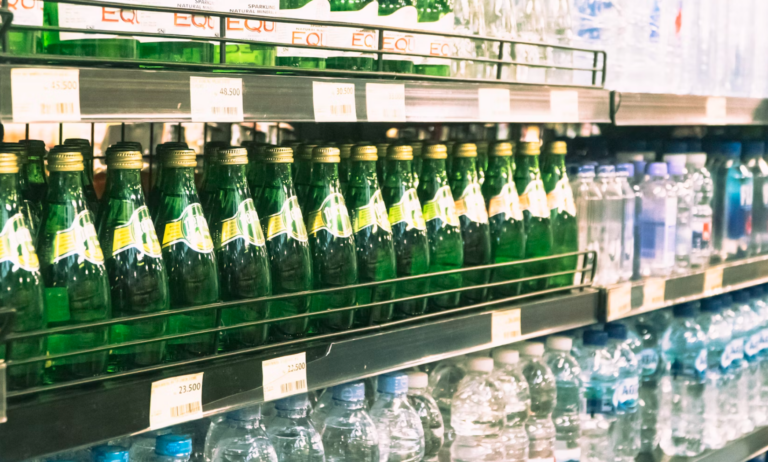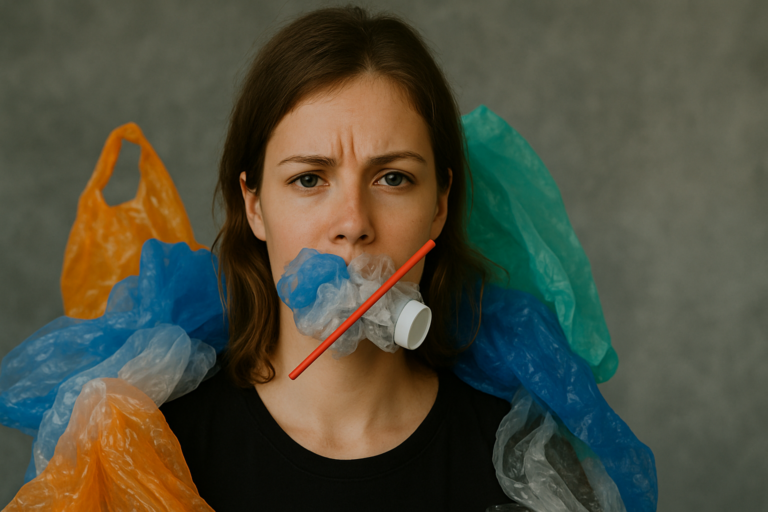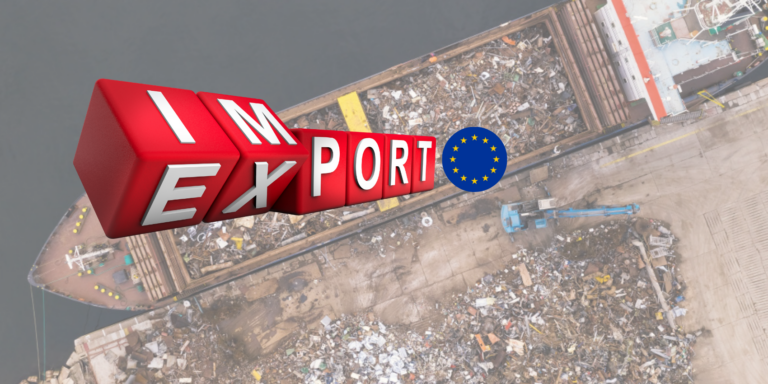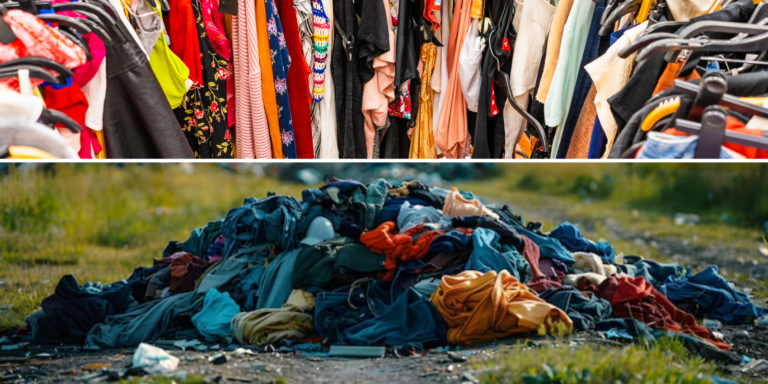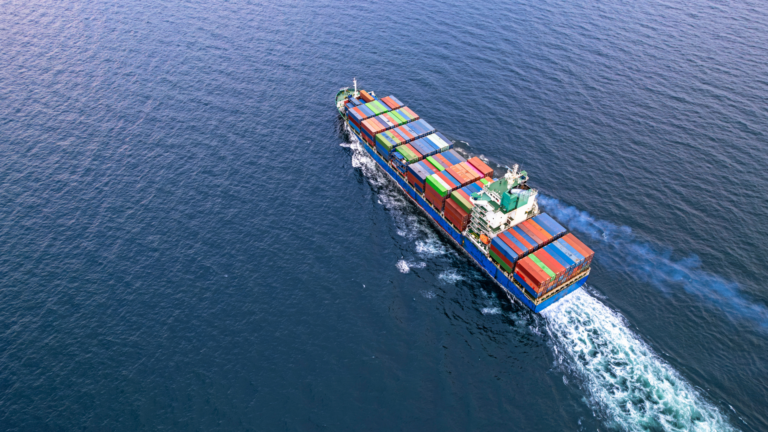Better waste management can help us achieve the Sustainable Development Goals
Details
In 2015, the United Nations (UN) launched several Sustainable Development Goals (SDGs), 17 in number, which by 2030 aim to improve the economic, social, climate, energy, etc. situation in 170 countries and territories of the world, including the Republic of Moldova. And the role of implementer of the objectives is played by the United Nations Development Program (UNDP), as a UN development agency.
Solving one problem will solve 12 more
Of the 17 proposed objectives, 12 can be achieved by 2030 if the waste management situation in our country undergoes a noticeable improvement.
Currently, in the Republic of Moldova, approx 1 137 deposits of waste occupying a total area of 1 222 ha. Landfills are organized by local public authorities and, in general, do not comply with environmental protection standards. The national waste storage rate remains high (~90 %), which confirms a very low waste recycling capacity. Simultaneously, in the period 2001-2018, the amount of municipal waste generated per capita increased by 170 %. According to the data published by the Environment Agency, in 2019 627.2 thousand tons of waste were reported. Most of the waste generated is municipal waste 528.2 thousand tons, of which only 7.2 % are collected separately, the rest, 91.7 % collected in a mixture (ODD 12.5.1.1.).
At country level, according to data from the National Bureau of Statistics, in 2020, 3795 m were transported to landfills3 waste (or over 1 million tons of municipal waste)[1] . Only in the municipality of Chisinau, 1903 m3 of waste were collected (about 586 thousand tons of waste), or 61% of the total waste collected at the national level. The number of people benefiting from waste collection services is increasing. In 2020, 1 million 395 thousand people benefited from municipal waste collection services, of which 1 million 64 thousand from the urban environment and 331 thousand from the rural environment. The number of localities that benefited from municipal waste collection services, during 2020, was 314 localities, including 54 municipalities and cities, and 260 villages (ODD 11). Thus, more than half of the country's population is served by sanitation services 53% (SDG indicator 11.6.1.1). For comparison, the recycling rate in Europe is significantly higher. In 2019, the highest recycling rate in the EU was recorded in Germany, 66.7 %, and the lowest in Romania – 11.5 % and Malta with – 8.9 %.
How does waste management contribute to achieving the 12 Sustainable Development Goals by 2030?
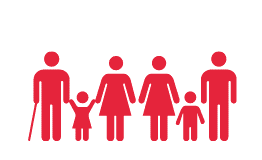
Goal 1: No poverty
In Moldova, the absolute poverty rate at the national level decreased from 73 % in 1999 to 9.6 % in 2015, and the extreme poverty rate decreased from 59.7 % to 0.2 % during the same period. The 2030 agenda of the UNDP in our country promotes the sustainable reduction of poverty with the most suitable measures to support low-income households. This entails appropriate social policies that must reach out to the poor and not only provide them with complementary financial resources for livelihood, but also socially and economically empower the poor.
In this regard, waste management contribute to the fight against poverty by creating jobs and employing workers from different social categories, including vulnerable people and communities. It also provides employment opportunities for both low-skilled and high-skilled jobs. In some cases, waste collection represents an additional income in addition to the basic activity for a certain group of people. At the same time, it is an opportunity to be engaged in waste collection to get out of poverty.
Goal 2: Zero hunger
In Moldova, Objective 2 of the 2030 Agenda emphasizes eliminating all forms of malnutrition and addressing the nutritional needs of population groups affected by this risk, such as children, pregnant and lactating women, as well as the elderly.

Zero hunger and zero food waste are goals that are significantly linked within the Sustainable Development Goals (SDGs). The United Nations has set a goal to halve food waste and avoid product loss throughout the supply chain.
Food waste is a global problem and accounts for approximately 30 % of all food produced in the world. According to the latest UNEP Food Waste Index Report 2021, 923 million tons of food is wasted each year globally, enough to load 23 million 4-ton trucks. Of the total food waste generated, 61% comes from households. The same report estimates that food waste at the level of households in the Republic of Moldova can reach 307,419 tons or 76 kg/capita/year.
Food waste is also a waste of valuable resources, and food shortages are a serious problem in low-income countries. In this context, the correct management of food waste, including through composting to them, it is an absolute necessity in the context where food waste also has a negative impact on the environment, being responsible for 10% of the global greenhouse gas emissions that cause climate change.
Goal 3: Health and well-being
Moldova has made significant progress in reducing the maternal mortality rate and, in particular, the mortality rate of newborns and children under the age of five over the last decade, although these are still fluctuating. According to the data from 2018, about 88 % of the population was covered by the mandatory healthcare insurance. Therefore, on the one hand, the population does not have full access to health services, and on the other hand, the resources available for guaranteed health services are limited.

In Moldova, Objective 3 on the 2030 Agenda aims to reduce health-related risks by providing wider access to health services, as well as providing information and education on health issues, such as healthy lifestyles, health promotion mental and medical services in the field of sexual and reproductive health. At the same time, within this objective, waste management it aims to protect the environment from pollution and ensure a safe life where people live. Garbage and waste, left unprocessed in localities, cause the spread of viruses and infections, odors and respiratory diseases, and are also a source of toxins that poison water and other foodstuffs. Collecting and disposing of waste away from residential areas, as well as keeping it in sanitary conditions, especially hazardous waste (e.g. medical, WEEE, waste oil, mercury-containing waste, etc.) is a challenge, but also important objective for maintaining public health.
Goal 6: Clean water and hygiene

In cities and towns, only 80 % of residents have access to centralized water and only 63 % to sewerage services. In villages, access to services is much lower, 50 % and 40 %, respectively. Almost 44 % of the country's population does not have access to clean drinking water. The quality of drinking water from both centralized and decentralized sources is low. The share of non-compliant samples remains at a constantly high level during the last years. According to statistical data, water from centralized sources is safer in terms of quality, the rate of samples with deviations from sanitary norms is approximately 40.1% of the total samples carried out for the year 2018, keeping the same rate as in 2009. This objective aims a broad approach as it covers all critical aspects in the water sector. Another aspect includes the expanded supply of clean and accessible water and adequate and equitable sanitation for all.
Access to clean water and hygiene is a prerequisite for a healthy life. The vast majority of landfills are not compliant (nor authorized), i.e. they are not equipped with soil protection, which leads to the contamination of both the soil and the groundwater surface. Reducing the amount of waste stored through separate collection and composting, including the closure of non-compliant landfills can significantly contribute to the prevention of water pollution.
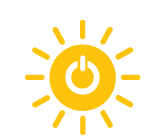
Goal 7: Affordable and clean energy
The Republic of Moldova is a net importer of energy. The volume of imported gas is twice the typical quota for European countries. Due to low incomes, during the cold period of the year, many households resort to more traditional, but less efficient, heating sources such as wood stoves. In Chisinau, around 80 % households face problems paying electricity bills. In this sense, the development of an efficient mechanism for acquiring clean and affordable energy is essential. While the traditional source of energy, in the form of fossil fuels, has a negative impact on climate change and the environment, it is necessary to use other alternative sources of energy.
Thus, waste processing offers one of the solutions. Anaerobic digestion (the process by which organic matter such as animal waste or food waste is broken down by bacteria in the absence of oxygen), for example, already makes it possible to turn waste into clean fuel – biogas. It can be harnessed to generate electricity and heat or converted into renewable natural gas and transportation fuels. Waste-to-energy methods have great potential as one of the affordable clean energy solutions.
Goal 8: Decent work and economic growth

After the economic recession of 2009, the economy of the Republic of Moldova grew on average by 4.5 % annually. Despite this growth, the economy did not improve its job creation capacity – the employment rate stood at nearly 38-40 %, one of the lowest in the region. That objective provides the key tools and mechanisms for achieving people-centred economic growth.
Economic growth remains a priority, but this growth must be sustainable. As shown by the data from annual report of the United Nations Environment Programme (UNEP, 2013), waste generation is closely related to GDP growth and increases proportionally with it. The overarching goal here is to separate waste growth from economic growth, using the principles of the waste hierarchy and introducing circular economy solutions. At the same time, waste management impacts economic growth in other ways as well. They increase business opportunities by creating a market for secondary resources, create jobs, stimulate people to save resources. Greater resource efficiency in production and consumption, which aims to decouple economic growth from environmental degradation, will enable economic prosperity and the generation of environmentally sustainable jobs.
Goal 9: Industry, innovation and infrastructure

Moldova's industrial potential remains unused with a share of only 12 % in GDP and employment (in 2015). According to the Global Competitiveness Report 2018, Moldova ranks 130th in the field of road quality and 79th in terms of general infrastructure quality (out of a total of 140 countries). According to this objective, the country must strive to build a robust industrial sector that would secure the generation of value-added and long-term production jobs, economic growth and the well-being of the population.
At the same time, waste management also requires innovative solutions and infrastructure development to transform waste into resources and energy. Whether landfill, incineration or recycling, solutions should be technologically advanced to minimize the environmental costs of waste and facilitate the extraction of maximum benefits from waste. Innovation and technology have already improved the waste processing process. The use of waste incineration facilities that could avoid air pollution, the conversion of waste into energy, the reprocessing of plastic into new products, the use of tires for road construction – all these examples tell us that innovative solutions are the key to more rational waste processing.
Goal 11: Sustainable cities and communities
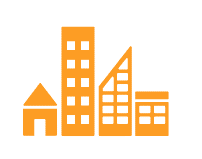
Although the rural population exceeds the urban population in the Republic of Moldova, the economic activities of the country are concentrated in the urban regions. As an indicator of SDG 11, the rate of connection to sanitation services in the Republic of Moldova, according to NBS data for 2020, is only 53%, of which only 18.4% in rural areas and 81.6 % in urban areas. However, the share of recycled household waste is kept very low. For example, in the municipality of Chisinau, according to the data provided by Î.M. "AUTOSALUBRITATE" directorate, in 2020, 1830 thousand m3 of waste, or 190.8 thousand tons, were collected and transported from the municipality of Chisinau, of which 174.5 thousand tons were stored at the waste landfill in Șînțareni and only 16.3 thousand tons or 8.5 % were sorted for recycling.
The 2030 Agenda addresses these issues by modernizing the transport system so that it can better connect cities and human settlements and become accessible, including financially and sustainably, to ensure that all citizens of Moldova benefit from the urbanization process. Also, increasing access to green and public spaces, thus reducing the negative impact of cities on the environment per capita, as well as reducing direct economic losses caused by disasters, are some of the goals of this objective.
At the same time, waste management protects the sustainability of urban life by protecting cities and communities from contamination by viruses that would spread without proper waste collection and storage. Since uncontrolled landfills cause odors and spread viruses, solid waste management aims to combat these problems to increase the quality of life in cities and make it safe, clean and pleasant. Reducing the impact of solid waste on the urban environment is one of the priorities.
Goal 12: Responsible consumption and production
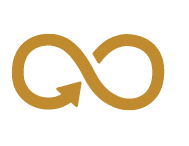
Moldova lacks an integrated waste management system, especially hazardous waste, in accordance with international requirements. This problem is even more acute in rural regions, where there are not enough places to store waste. As evidence, according to NBS data, for the period 2005-2018, there is an increase of 48 % in the amount of hazardous (toxic) waste generated annually. Only for the period of 2017 and 2018, an increase in the amount of generated waste was reported, from 1511 tons in 2017 to 4254 tons in 2018.
Achieving success in waste hierarchy initiatives requires a crucial transformation of consumption mindsets and production patterns. Creating a responsible consumer and producer is very important to achieve this change and to succeed in the goals of sustainable development. This is a real challenge for manufacturers, who bring the products to the market, at the same time, it is also the responsible choice of consumers which product to choose. Extended producer responsibility (REP) are actions where they bear responsibility for their product until the end of its life cycle and agree to accept the product for recycling after use, the so-called take-back system. When manufacturers take responsibility for retrieving and reusing the waste associated with their products, it motivates them to look for better solutions for product packaging design, to use more easily recyclable or reusable packaging, and to pay more attention to the products they manufacture. . In the meantime, it is necessary to strengthen the efforts and the agenda of actions in order to succeed in achieving some relevant indicators for which at the moment results are not visible, namely what concerns eco-efficient companies (with rational consumption of resources), ecological public procurement and the existence in the school curriculum of the discipline about sustainable development.
Objective 13: Action on the climate
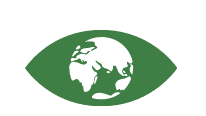
Droughts are the most devastating hazards related to climate change, causing direct losses of approximately 6 % of GDP in 2012. In the Global Agenda 2030, the objective itself focuses on adaptability and promoting resilience to climate change. At the same time, the impact of waste on greenhouse gas (GHG) emissions must also be considered. . First, uncontrolled landfills are the source of greenhouse gas emissions such as methane and carbon dioxide that are generated by discarding food waste.
Emissions from landfills have already reached 1.6 billion tons of carbon dioxide, 5 % of total GHGs in 2016. According to estimates, if the current disposal of solid waste continues at the same rate, until 2050, 2, 6 billion tons of GHG will be attributed to emissions from landfills (The World Development Report 2018, p.5 (WDR 2018)). Solid waste management can have an impact on mitigating climate change by reducing greenhouse gases, if solutions are provided for the correct disposal and storage of waste in order to reduce those emissions.
In Moldova, the energy sector has the largest contribution to national GHG emissions, with an average share of 81.5 % in 1990 and 68.1 % in 2016. The agricultural sector is the second contributor to emissions with an average annual share of 12 % in the base year and increasing to 17 % in the year 2016. Industrial processes and product use account for 3 % in 1990 and 5 % in 2016, and the waste sector emits 3 % for the year 1990 and increased to 10 % in the year 2016. Another indirect impact on the prevention of climate change is the fight against deforestation, which can be achieved by recycling paper to reduce the demand for wood fibers (UNEP, 2013, p.28). According to the "Moldsilva" agency, the national forest fund occupies 12.7 % of the country's territory (for comparison: on average in Europe – 29 %, in the EU – 44 %, in the world – 31 %). If in 2007 approximately 18,000 hectares of forest were deforested, in 2017 almost 32,000 forest hectares were deforested in a single year.
Objective 14: Life Under Water
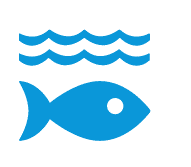
The problem of ocean pollution with plastic and microplastic is one of the biggest challenges to be tackled because water pollution creates a number of problems. The prohibition of marine pollution is the subject of numerous international conventions that protect marine resources from pollution by waste. This issue was touched upon by the Ellen MacArthur Foundation at the 2016 World Economic Forum in Davos, stating that approximately eight million tons of plastic is in the ocean and harming marine life. The purpose of waste management is to protect the oceans from hazardous and non-biodegradable waste and to prevent plastic from entering the water. The United Nations has established several Sustainable Development Goals (SDGs) to reduce the total amount of waste, guided by the "reduce, reuse, recycle" principle, which aims to reduce the negative effects of waste on the environment.
For its part, Moldova must prevent and significantly reduce the pollution of water surfaces, including rivers from land activities. The Dniester River flows directly into the Black Sea, while the Prut River flows into the Danube. Also, the Republic of Moldova aims to prevent overfishing and eradicate illegal, unregulated and undeclared fishing. As for the positive impact of waste management, it results in saving virgin resources and slowing down the depletion of natural resources. At the same time, the fight against deforestation and the recovery of protective forest strips on the banks of rivers and water basins are also taken into account here.
Goal 17: Partnerships for the Goals

This objective aims to strengthen resource mobilization to improve the national capacity to collect taxes and other revenues, as well as to encourage and promote effective public, public-private and civil society partnerships. By strengthening existing initiatives and supporting statistical capacity building, measure progress on sustainable development.
At the same time, waste issues require a comprehensive approach and collaboration at global and local levels. Global partnership is essential to share its responsibility and experience to support developing economies to cope with the pace of waste generation. Waste issues require collaboration between many actors, including governments, businesses and consumers. Only if all stakeholders act in a more thoughtful and collaborative way with regard to resource consumption can sustainable development be achieved.
All objectives are interconnected – often the key to success in one area will involve addressing issues more commonly associated with another area. An example is waste management, as mentioned above. Accomplishing one goal completes another, and the second completes the third, the third the fourth, and so on up to 17, generating a chain reaction. We can all contribute to the triggering of this reaction, and to begin with it is necessary to at least take the actions of distributing the garbage to the inscriptions: "plastic", "paper" and "household waste".
The article is made within the Project "Waste statistics - key enabler for the circular economy" financed by the Austrian Development Agency (ADA), from the funds of the Austrian Development Cooperation (ADC).
[1] (https://statistica.gov.md/newsview.php?l=ro&idc=168&id=6978 ).
Related articles
Este timpul pentru acțiuni decisive: societatea civilă cere un Tratat Global ambițios care să pună capăt
Ne-am obișnuit să aruncăm, am uitat să reparăm, să reutilizăm și să prelungim durata de viața
Centrul de Instruire și Consultanță „E-Circular” anunță lansarea apelului pentru contribuții științifice în cadrul Conferinței Naționale
Reacțiile la studiul publicat recent de Agenția Franceză pentru Siguranța Alimentelor, Mediului și Sănătății Ocupaționale (ANSES)
De ani de zile, marcăm simbolic Ziua Mediului, vorbim despre reducerea poluării cu plastic, venim cu
Modelul economic actual este construit în mare parte pe un sistem liniar de tip „extrage-produce-aruncă”, în
În contextul economiei circulare și al gestionării eficiente a deșeurilor, mecanismul de Responsabilitate Extinsă a Producătorului
În tranziția spre economie circulară, exporturile de materii prime reciclabile din Uniunea Europeană către țări terțe
Ziua Internațională “Zero Deșeuri” sărbătorită pe 30 martie și facilitată în comun de Programul Națiunilor Unite
La data de 20 mai 2024, a intrat în vigoare noul Regulament UE 2024/1157 privind transportul deșeurilor




